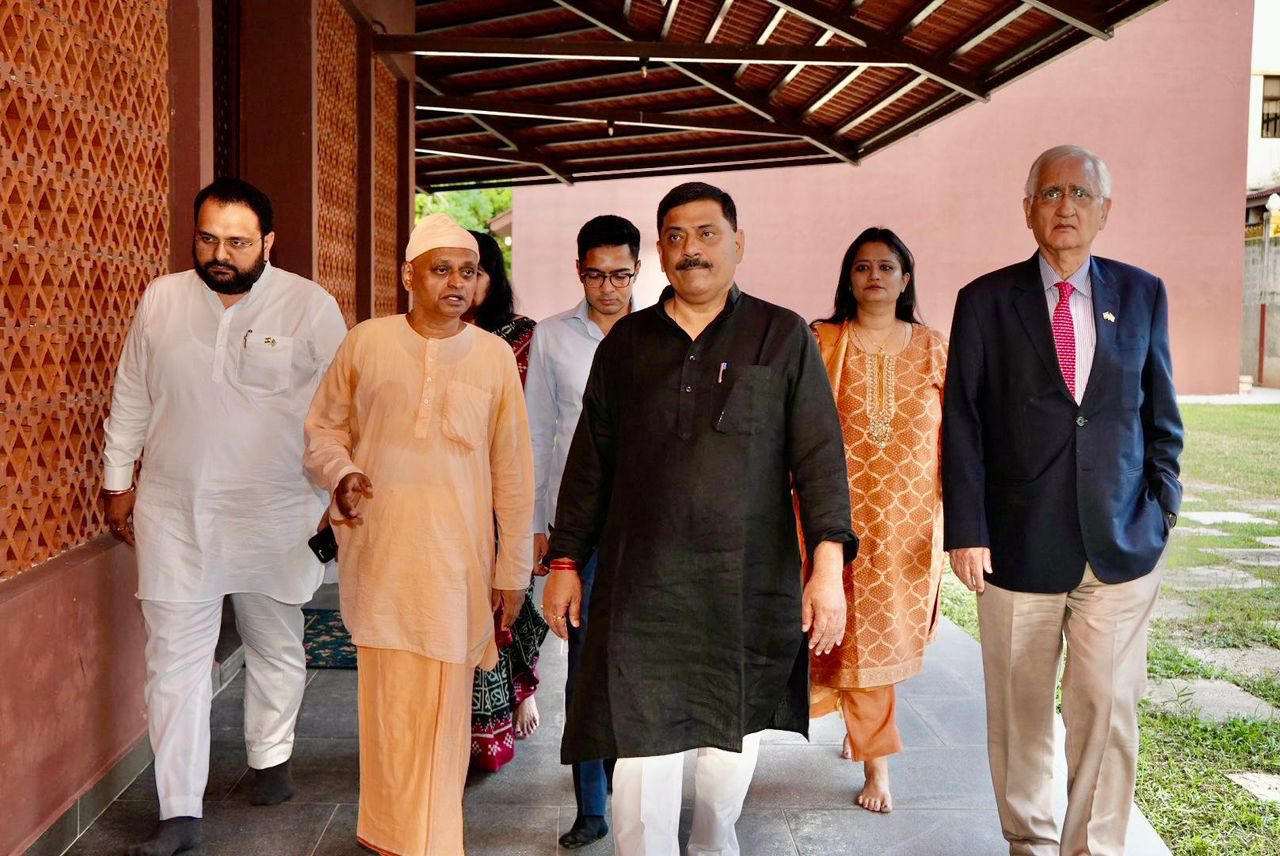‘Is It So Difficult to Be Patriotic?’: Salman Khurshid Slams Partisan Jabs Amid Global Anti-Terror Outreach
Senior Congress leader and former Foreign Minister Salman Khurshid has issued a blunt message to political detractors back home: national unity must rise above partisan calculation when confronting terrorism.
 |
| Image Source: FM/MEA on X |
Khurshid, currently in East Asia as part of a high-level delegation led by JD(U) MP Sanjay Kumar Jha, expressed concern over political mudslinging in India while lawmakers abroad are working to project a united front. In a post on X, he wrote: “When on mission against terrorism, to carry India’s message to the world, it’s distressing that people at home are calculating political allegiances. Is it so difficult to be patriotic?”
The comment comes amid domestic controversy following Khurshid’s remarks in Indonesia, where he noted that Pakistan’s attempts to destabilize Jammu & Kashmir post-Article 370 abrogation were aimed at reversing gains made on the ground. His statement was seized upon by BJP leaders as tacit endorsement of the government’s move.
Khurshid is part of one of seven multi-party delegations dispatched to 33 global capitals as part of India’s post-Pahalgam diplomatic offensive. The effort blends strategic messaging with cross-party credibility, as MPs from Congress, BJP, JD(U), RJD, AAP and others travel jointly to communicate India’s zero-tolerance stance on terrorism.
His post, made while on mission in East Asia, underscores a deeper concern among several members of the delegation—that political divisions at home are undermining the message of national unity being conveyed abroad.
The broader diplomatic initiative was triggered by the April 22 attack in Pahalgam, Jammu and Kashmir, which killed 26 civilians and was linked by Indian authorities to Pakistan-based terror groups. India responded with Operation Sindoor, a series of cross-border precision strikes, and launched a parallel diplomatic campaign spanning the U.S., Europe, Southeast Asia, Africa, and Latin America.
While political consensus abroad has been a key strength of the campaign—reflected in support voiced in Berlin, New York, and Tokyo—Khurshid’s remarks suggest that domestic politics may be clouding the bipartisan clarity India is working hard to project internationally.
